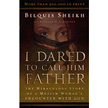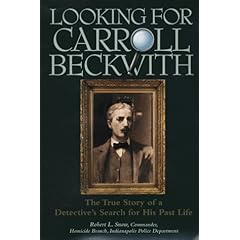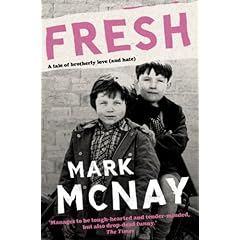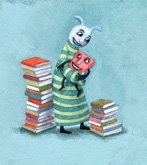 | I Dared to Call Him Father, 25th Anniversary Edition: The Miraculous Story of a Muslim Woman's Encounter with God By Bilquis Lohse / Baker At a time when new questions about Islam arise daily, the miraculous story of Bilquis Sheikh will help you understand and reach out to Muslims---with compassion and the gospel. A wealthy Pakistani woman, the outspoken Sheikh came to know God through a dream, turning her world upside down---and putting her life in danger. 192 pages, softcover from Baker. |
At first glance I thought that perhaps this book would better enable Christians to understand the mind of a Muslim, their point of view, helping them to better witness to Muslims. I can tell you that this book is definitely not focused upon apologetics, nor is it full of ‘how-to’s’ on reaching out to the Muslim community. Rather it is the intimate story of one woman coming to know Jesus as her Lord and Saviour, and her resulting walk in obedience with Him, and His faithfulness to her. It just happens that she was a wealthy Muslim in Pakistan, but truly, this story could be the testimony of any person that the Lord has drawn to Him, out of any circumstances.
I was so moved to read of how God reached into the life of Bilquis and drew her to him.
John 6:44 - No man can come to me, except the Father which hath sent me draw him: and I will raise him up at the last day.And indeed, my own testimony, and that of others bears witness to the truth of that verse as well. Without any overt evangelism God can still speak to us through the circumstances in our lives and draw us to His son. The author experiences a rather dramatic and prophetic conversion, the story of her coming to the Lord is quite striking, unique and moving. Her resulting early walk in faith with Jesus and of striving to live in the presence and power of the Holy Ghost every waking moment is so inspiring. Would that I, myself, had such a clear witness of the Spirit in my life on such an ongoing basis rather than in glimpses here and there.
For our family we do have one doctrinal disagreement with the book. The matter of her baptism is one that we will have to discuss further in terms of doctrine when we re-read this book together; I'm not about to argue with the validity of her baptism, because she was in trying circumstances, and felt she had a word from the Lord, but our family does hold to believers baptism by immersion performed by a believing man. I obtained this book to add to our growing homeschooling and personal home library, as I intend to acquaint my growing children with notable Christian biographies throughout their years in our home. Since our children are only 5 and 2 it will be a few years before we read this book together (sorry, I won't be re-listing) due to some of the complex social themes presented, those of ostracism namely, though this is definitely a social phenomenon that we as Christians, and our children should be prepared to face as we follow Jesus.
Jhn 15:18 - If the world hate you, ye know that it hated me before [it hated] you.A moving and true personal testimony of one womans desire to obey the Lord Jesus Christ and to walk in His Spirit, and by His power, every waking hour, to be obedient in even the smallest details of her life, is one that we can use as an example in our own walk in faith with Jesus Christ, our saviour. The book also includes a very touching after-word (which brought me to tears) by a missionary wife who was used of the Lord in Bilquis' quest for the truth, and her later discipleship. The author is now with the Lord, and continues to serve as a shining example of a personal relationship with Jesus for us today.
1Jo 3:13 - Marvel not, my brethren, if the world hate you.
-----------------------
Jennifer Bogart blogs about christian parenting, family living, homeschooling and more! She loves writing Christian book reviews. This review may be republished in its entirety.





